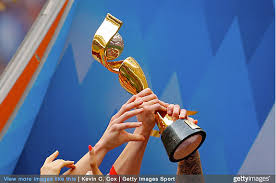February 11 – On the eve of the FIFA delegation’s on-the-ground inspection of Australia and New Zealand’s bid for the 2023 Women’s World Cup, Football Federation Australia boss James Johnson has expressed his confidence in the Antipodean quest to co-host the tournament.
“FIFA will have specific areas they will want to see on the ground,” said FFA chief James Johnson said on Tuesday. “They will have an objective report, a scorecard, if you like, that they will develop and that scorecard will then be used by the FIFA council as a guiding tool to decide in June.”
“I think if you’re sitting in Zurich and you want to ensure that you have a safe pair of hands to look after one of your top competitions, I think that what we’ve delivered will actually provide FIFA with a lot of confidence,” continued Johnson, referring to Australia stepping in at the last minute to stage the Olympic qualifiers for coronavirus-hit China.
Late last month, football’s global governing body began inspection visits, with Colombia the first prospective host country submitted to an assessment. From February 3 to 6, Brazil were the second bidders to receive the FIFA delegation. Next week, it is the turn of both Australia and New Zealand before inspections are wrapped up in Japan at the end of the month.
Once FIFA’s inspection team has concluded its work, a report will be forwarded to the FIFA Council. The report functions as a recommendation, as previous World Cup bidding races have proven.
The four bids for the 2023 Women’s World Cup all have different sales pitches. Brazil says that staging the 2023 Women’s World Cup can act as the legacy of the 2014 Men’s World Cup; Colombia stresses the importance of hosting a major tournament for the country and proposes low ticket prices; and Australia and New Zealand argue that their bid will be ‘player centric’ with the aim of increasing female participation. Finally, Japan, 2011 Women’s World Cup champion, promises 5G connectivity in its stadiums.
The 2023 Women’s World Cup will be held for the first time in a 32-team format following the success of last year’s Women’s World Cup in France.
“I think if you look at FIFA 2.0’s new philosophy, it’s about spreading football to all parts of the world and ensuring that football is more inclusive than what it was in the past,” said Johnson.
Whether those new territories will include the Australia and New Zealand remains to be seen. The FFA and New Zealand Football (NZF) are believed to be targeting the European and African votes on the FIFA Council as both continents play no part in the bidding race, and represent half of the vote.
In June, the Council will award the hosting rights at the FIFA Congress in Addis Ababa, Ethiopia.
Contact the writer of this story, Samindra Kunti, at moc.l1713864684labto1713864684ofdlr1713864684owedi1713864684sni@o1713864684fni1713864684

